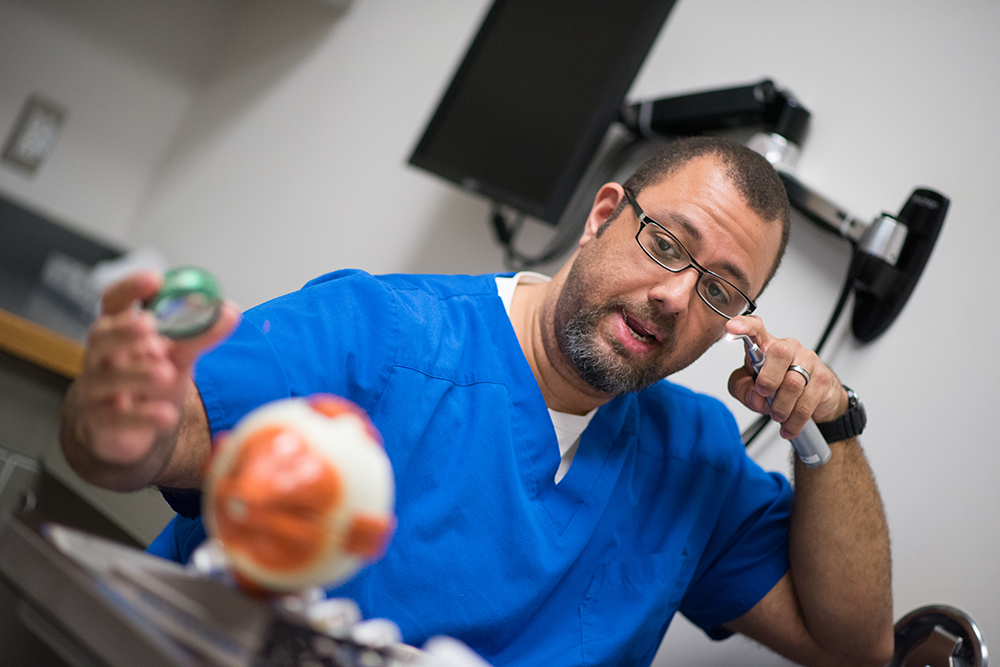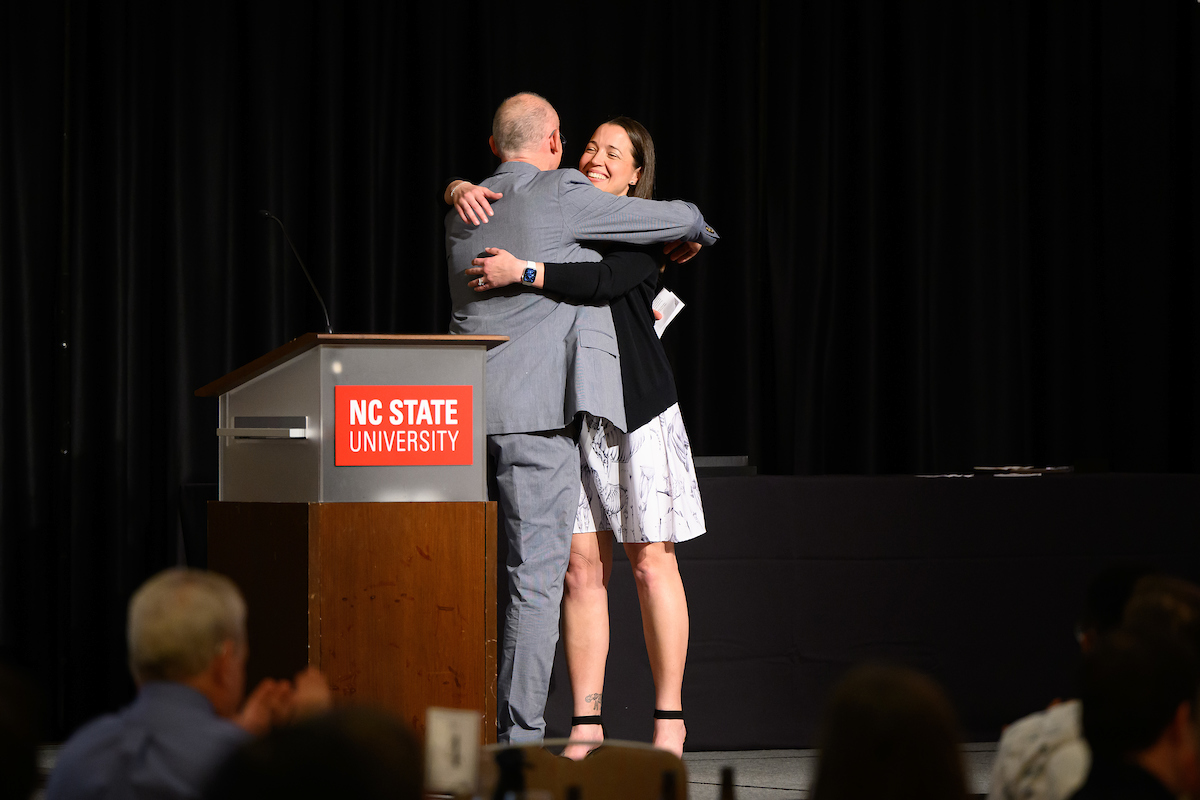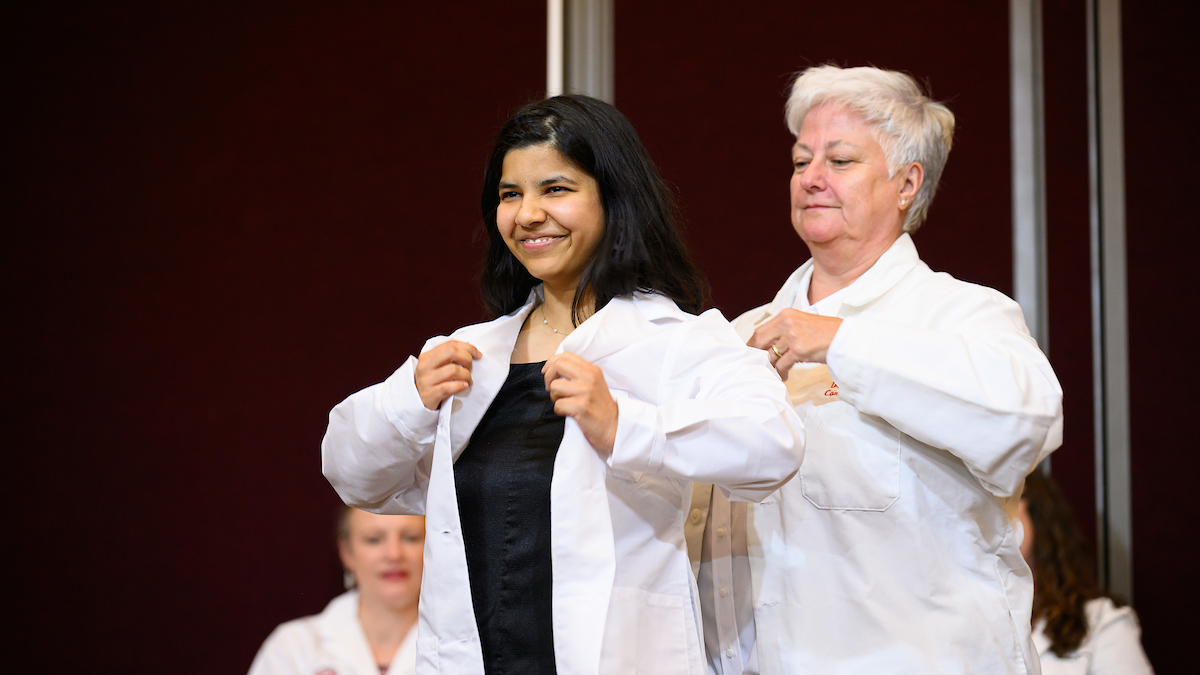National Veterinary Technician Week: Meet Damian Launer

Growing up in Bloomington, Ind., Damian Launer loved animals and wanted to become a veterinarian so much that he began working in a private practice when he was just 15 years old. He learned about veterinary medicine from the ground up and just kept working.
After relocating to North Carolina he was hired into the ophthalmology service at the NC State Veterinary Hospital, where he has worked for 13 years. Today, he is the senior member of the three-person vet tech team. It has turned out to be a perfect fit. College of Veterinary Medicine students have voted Launer the small animal technician of the year four times.
What is your typical day like?
It all depends. I’m the first tech here in the morning, and if it’s a surgical day I’ll make sure that the patients are set. I go down a checklist of things like blood work and if the anesthesia service is ready for us. If it’s an appointment day, I review the schedule and I’ll talk with the students, briefing them for about an hour about what they will need to do during an exam. Then we might end up doing certain tests on a patient, such as an ultrasound or a test to determine retinal function. We get many images of the eyes. Sometimes we do outpatient exams if the patient can’t come to us.
About 95 percent of our patients are dogs, cats or horses, but we’ll also see exotic animals and zoo animals — all kinds of species.
What is the most rewarding thing about your job?
I like when we have students who are eager to learn. They are the best to teach. We have an experienced group of techs in ophthalmology, all with at least 10 years of experience here, and we take teaching very seriously.
What is the hardest part of your job?
Seeing animals in pain. We try to make them comfortable and we try to save the eye, but sometimes you know it’s probably not going to happen. Then the decision has to be made to remove the eye, but even when that happens we can still try to make them comfortable.
What made you want to go into this field?
Ever since I was a kid I wanted to be a veterinarian. That wasn’t in the cards for me, and I became a tech instead. When I moved to New Mexico in my 20s … I briefly tried to become an electrician’s assistant but that didn’t last a week. It showed me that this is where I belong. I’ve been lucky to have some great mentors that have really helped me along the way, too.
What is your most memorable professional experience?
Probably when we removed a cataract from an elephant at the North Carolina Zoo. It was six years ago, and the whole process was amazing. I love elephants. They’re so large, yet so graceful and they’re so family-oriented. It was an all hands on deck surgery, and I had the chance to be the chief tech. The entire process took several trips, beginning with the diagnostic part, but just getting to work with him and seeing everything that went into it was incredible.
[give url=”https://securelb.imodules.com/s/1209/giving/plain.aspx?sid=1209&gid=214&pgid=3813&cid=6343&appealcode=LB&bledit=1&sort=1&dids=6032″ headline=”Support Vet Techs” subheadline=”Continuing Education Fund” ]
This is the third in a series of NC State veterinary technician profiles that will run throughout the week in celebration of National Veterinary Technician Week.
- Categories:


